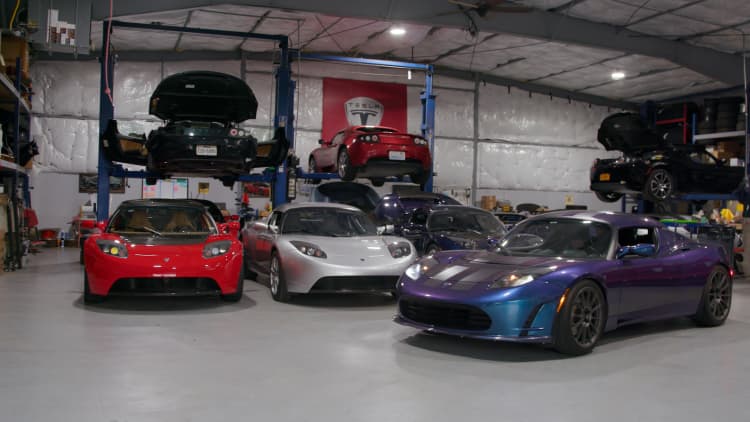

The Tesla logo is captured on a sign outside a shops in Zurich on Nov. 13, 2023.
Joan Cros | Nurphoto | Getty Images
An Indiana jury found that electric vehicle maker Tesla and one of its employees were partially liable in a 2017 crash between a company-owned Ford truck and a motorcycle that left the motorcyclist with a partial amputation, permanent disfigurement and a traumatic brain injury.
Tesla and the employee, Kyle Kaszuba, must pay more than $42 million in damages to the victim, Christopher Dugan, a Marion County jury said in a Wednesday verdict.
The jury found that Dugan was 30% liable for the crash, reducing the award from $60 million to $42 million. Dugan’s attorneys had reportedly been seeking an award of $191 million.
The crash occurred while Kaszuba was operating a 2014 Ford vehicle owned by Tesla either with the permission of Tesla or while working in his capacity as a Tesla employee, Dugan alleged in his initial complaint.
Dugan had exited an Indianapolis gas station and was in the “right-hand traffic lane” when Kaszuba, operating the Tesla-owned Ford Super Duty, “carelessly” drove the vehicle across two lanes of traffic while attempting to turn into a parking lot near the gas station, according to the complaint.
Kaszuba allegedly crashed the truck into Dugan’s motorcycle, throwing Dugan off the motorcycle and causing Dugan to sustain devastating injuries, “a direct and proximate result of the negligence of the Defendants, Tesla, Inc., and Kyle Kaszuba,” per the complaint.
Tesla’s attorneys from Quinn Emanuel had argued that Kaszuba was not negligent in his actions and that Dugan was closely following a vehicle that made it difficult for the Tesla employee to see him, according to Courtroom View Network. An attorney for Dugan, Nick Rowley, argued that Kaszuba was in a rush to get to work, according to CVN.
The gas station near where the crash occurred is located just outside of a ramp to I-465, the ring road that encircles Indianapolis.
Tesla did not immediately respond to CNBC’s request for comment.
— CNBC’s Lora Kolodny contributed to this report.




